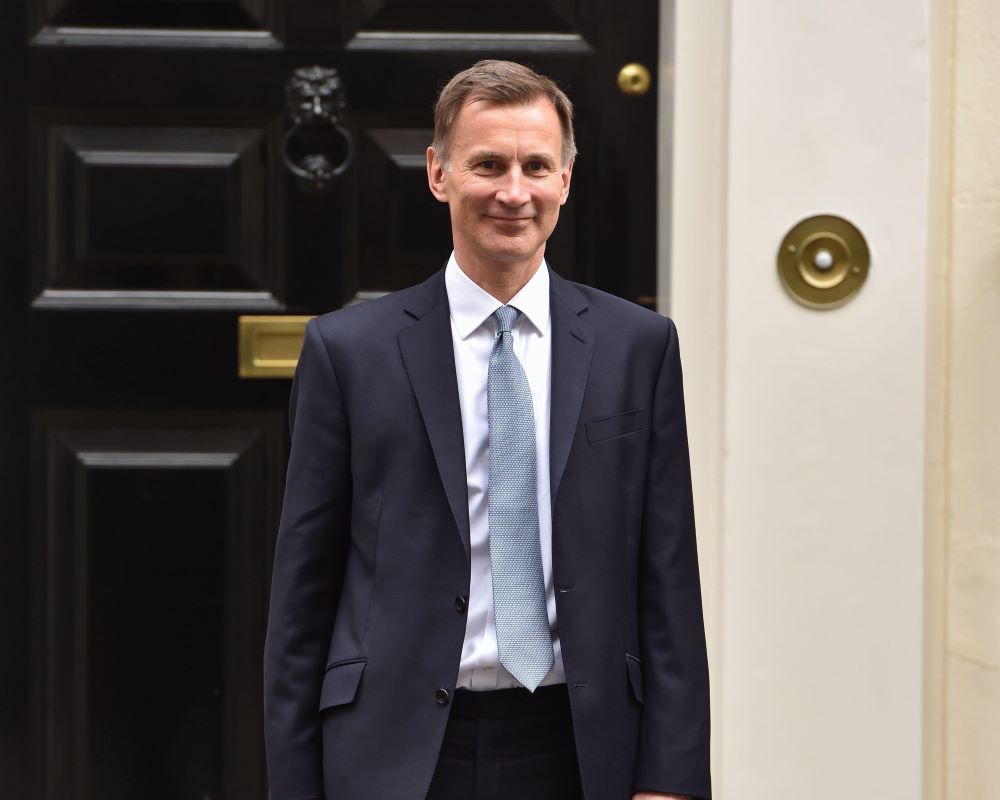"Brexit And Political Uncertainty" May Have Left Britain With Worst Growth In G7
Paul Johnson, director of the Institute for Fiscal Studies (IFS). (Alamy)
4 min read
Paul Johnson, director of the Institute for Fiscal Studies (IFS), has told PoliticsHome Brexit and last year’s political turmoil may be among factors that have contributed to the IMF's gloomy economic forecasts for the UK.
His remarks came on Tuesday following the IMF’s forecast that the UK’s GDP will shrink by 0.3% in 2023 – the lowest in the G7, and lower than Russia; however, the IMF do still expect the UK’s economy to grow by 1 per cent in 2024.
The IMF's forecasts are more pessimistic than the Office for Budget Responsibility (OBR), the government's own watchdog – which in March predicted the UK economy would contract by 0.2% in 2023 before growing by 1.8 per cent in 2024.
“I don't think we've learned anything particularly new,” said Johnson responding to the IMF's latest forecasts.
“When the last IMF report said much the same stuff - I mean, this one's actually slightly less gloomy than that one. We know that the UK economy over the last four years has done less well than other major economies.”
The IMF previously forecast the UK's economy would contract by 0.6%.
However, Johnson said there are multiple factors that may be driving the UK’s poor economic growth.
“If we look over the last three years... we are the only major country that hasn't gone back to pre-pandemic levels,” said Johnson.
“Brexit has played a role – it's made trade more expensive. Clearly, the fact that we are more dependent on international gas imports than many countries, and we're particularly high users of gas.
“We seem to have a particularly tight labour market for reasons that aren't completely clear - we've lost more people from our labour force than other countries have.
“And the sort of political uncertainty that we had last year, really hasn't helped in terms of in terms of investment, and so on.
“So, you put all of those things together and you've got a narrative which can explain, broadly speaking, why we're doing so badly - but I can't give you a mathematical [answer].”
 Johnson’s remarks come after Chancellor Jeremy Hunt struck an optimistic tone responding to the IMF’s forecasts on Tuesday – in part relying on the OBR's forecasts in March.
Johnson’s remarks come after Chancellor Jeremy Hunt struck an optimistic tone responding to the IMF’s forecasts on Tuesday – in part relying on the OBR's forecasts in March.
“Thanks to the steps we have taken, the OBR says the UK will avoid recession, and our IMF growth forecasts have been upgraded by more than any other G7 country,” said Hunt.
“The IMF now say we are on the right track for economic growth. By sticking to the plan we will more than halve inflation this year, easing the pressure on everyone.”
However Labour has criticised the government’s record on the economy amid the IMF’s gloomy forecasts.
“IMF projections that Britain will have a smaller economy by the end of the year, and the poorest growth in the G7 over this year and next, shows just how far we continue to lag behind on the global stage,” said shadow chancellor Rachel Reeves.
“This matters not just because 13 years of low growth under the Tories are weakening our economy, but because it’s why families are worse off, facing a Tory mortgage penalty and seeing living standards falling at their fastest rate since records began."
On the government’s strategy for growth while Johnson said “there’s a limited amount the government can do in the short run” he would “struggle” to outline the government’s strategy is.
“Some of the things in the budget to try and get more people back into work they're modest, very modest - broadly speaking in the right direction, but it's really important to be clear how modest they were.
“Then we're borrowing more, and we've got a slightly somewhat looser fiscal policy than was previously intended, which probably helps a bit with with the short run.
“Obviously the uncertainty around where the corporation tax system is going doesn't help - but more political stability, and a sense of just getting the ship back on track, is probably you helping somewhat.
“So if you if you asked me to say here, what is the government's economic strategy? I think I'd probably struggle.”
PoliticsHome Newsletters
PoliticsHome provides the most comprehensive coverage of UK politics anywhere on the web, offering high quality original reporting and analysis: Subscribe
